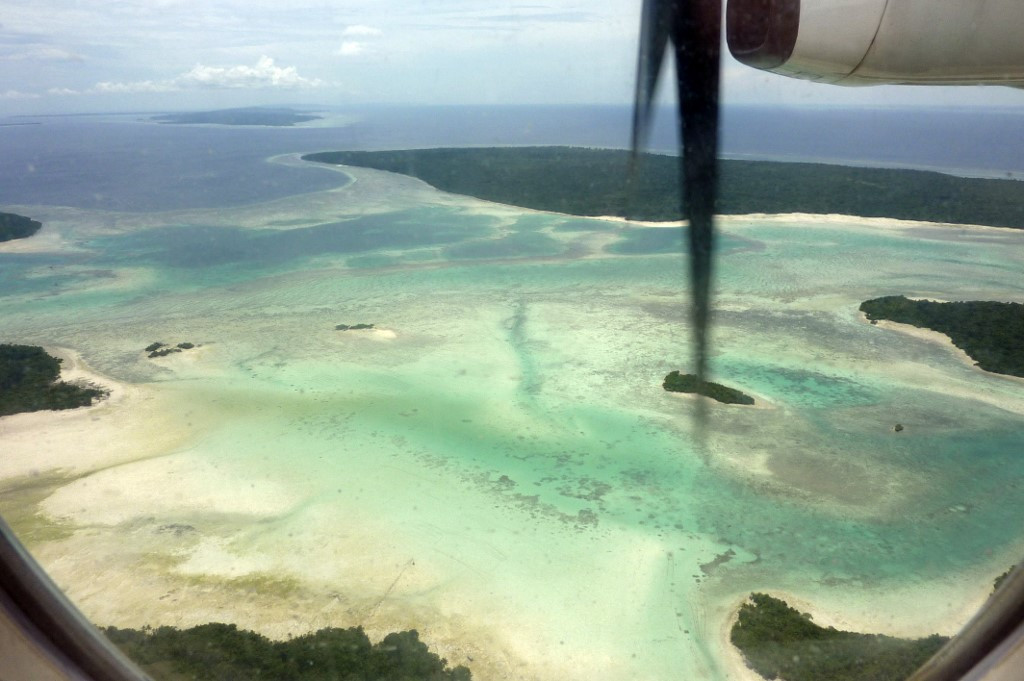Fossil Fuel Threatens Biodiversity in Coral Triangle
As the UN’s COP16 summit on biodiversity in Colombia unfolds, a stark report has highlighted the urgent threats posed by fossil fuel exploration in the Coral Triangle—one of the globe’s richest marine ecosystems. Increasing activities in oil, gas, and liquefied natural gas (LNG) extraction within the Indo-Pacific region jeopardize not only marine species but also the livelihoods of nearly 120 million people who depend on these waters for survival.
What is the Coral Triangle?
Known as the "Amazon of the seas," the Coral Triangle sprawls over 10 million square kilometers encompassing the waters of Indonesia, Malaysia, Papua New Guinea, Singapore, the Philippines, Timor-Leste, and the Solomon Islands. This unique bio-diverse area hosts an astonishing three-quarters of the world’s known coral species, six of the seven marine turtle species, and serves as a critical feeding ground for whales and other marine mammals.
Who Is Behind the Report?
The concerning findings were compiled by notable monitoring bodies such as Earth Insight, which undertakes threat-mapping research; SkyTruth, a satellite imaging watchdog; and the Center for Energy, Ecology, and Development, a Filipino think tank. Their collaborative effort outlines the grim repercussions of fossil fuel activities in this delicate region.
Oil and Gas Expansion Endangers Marine Life
The report reveals that over 100 offshore oil and gas blocks already operate in the region. Moreover, an alarming additional 450 blocks are currently subject to exploration for future extraction. The analysis notes that if all these blocks enter production, approximately 16% of the Coral Triangle would face direct adverse effects from fossil fuel development.
The report warns of the potential for increased shipping traffic—heightening the risk of oil spills and further damaging delicate ecosystems. Since July 2020, satellites have recorded 793 oil slicks in the Coral Triangle, primarily produced by transit vessels, collectively covering an expansive area exceeding 24,000 km².
"These slicks represent a significant threat to the rich biodiversity of the Coral Triangle," noted an author of the report. "If industrial activities continue, we may witness irreversible damage to species and habitats that are already under serious threat."
Urgent Call for Action
To counter the escalating risks posed by fossil fuel extraction, the contributors to this report advocate for an immediate moratorium on oil, gas, mining, and other industrial activities in the environmentally sensitive areas of the Coral Triangle. They also emphasize the need for a transition to clean energy sources, bypassing LNG as a transitional fuel.
Furthermore, they call for the Coral Triangle to be designated as a "particularly sensitive sea area" deserving of enhanced protection from shipping activities.
Global Biodiversity Goals at Risk
The backdrop to this plea for action is the Kunming-Montreal Global Biodiversity Framework, which was established two years ago by 196 parties to the UN’s Convention on Biological Diversity. This framework includes ambitious targets to "halt and reverse" biodiversity loss by 2030. Specifically, it aims for 30% of marine and coastal areas to be "effectively conserved and managed," and for another 30% to be "under effective restoration."
However, as pointed out in a recent Greenpeace report, only 8.4% of the global ocean currently enjoys any form of protection. "At the current rate, we won’t hit 30% protection at sea until the next century," stated Greenpeace policy advisor Megan Randles, underscoring the pressing nature of the situation.
Implications for Communities and Industries
The implications of failing to take decisive action extend beyond environmental impacts; they jeopardize the very fabric of coastal communities. More than 120 million people rely on the Coral Triangle for food, income, and cultural heritage. The degradation of this marine ecosystem threatens not only biodiversity but the survival and resilience of these communities.
With rising global temperatures and climate change already placing significant stressors on marine environments, the exploitation of fossil fuels represents a double threat. As marine species face additional pressures from pollution and habitat loss, the ripple effects can disrupt local fishing industries, tourism, and health, exacerbating poverty in already vulnerable populations.
The Path Forward
The report emphasizes the critical need for international cooperation and dedication to conservation efforts. As countries gather at COP16 to assess progress and set targets, the Coral Triangle stands as a poignant reminder of what is at stake.
By prioritizing the protection of this vital marine area, the global community can help shield it from the ravages of industrialization while ensuring that local communities’ rights and livelihoods are upheld.
The time for action is now. As the world continues to grapple with the challenges of climate change, energy transition, and biodiversity loss, fostering sustainable practices in marine environments is crucial.
As discussions unfold at the COP16 summit, stakeholders and advocates are urged to speak up in support of conservation measures that could safeguard the Coral Triangle. Collaboration and commitment to implementing ambitious environmental protections are imperative for safeguarding these invaluable ecosystems.
For further information on biodiversity and marine conservation efforts, explore our articles on the subject.
We invite readers to share their thoughts and perspectives in the comments below. Your voice is crucial in driving awareness and investigations into these pressing issues.
